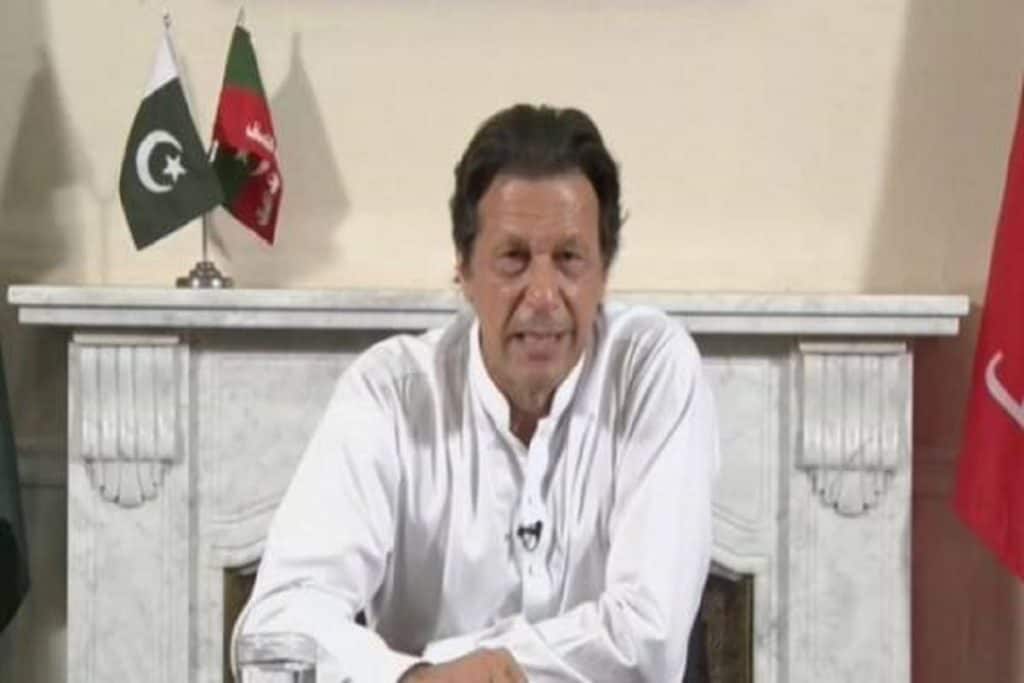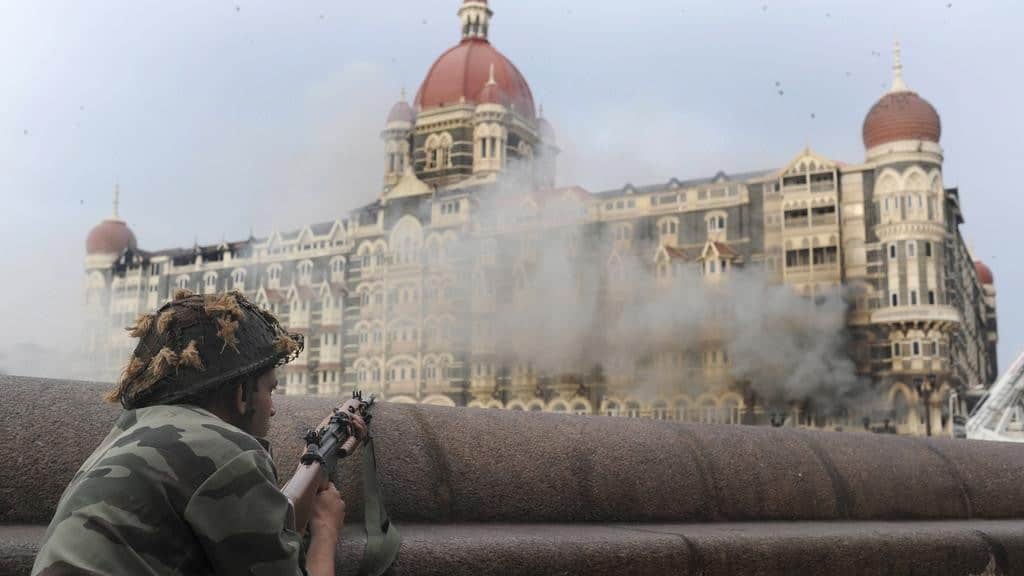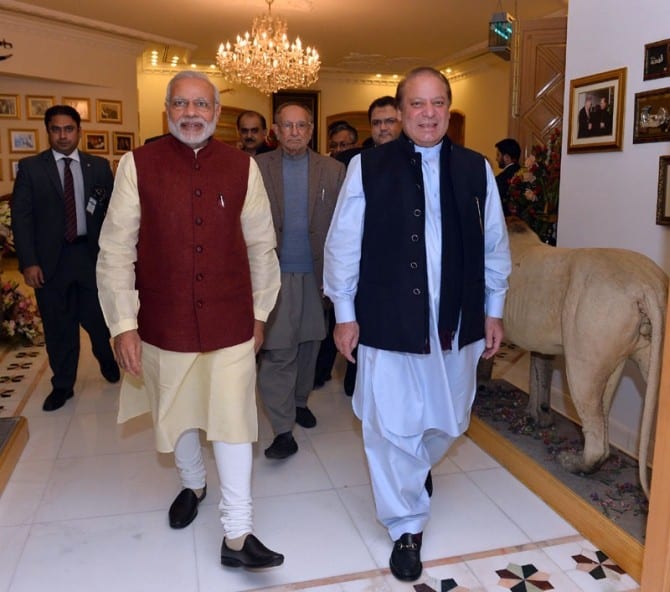By Nahal Sheikh
Each new government that is handed over the fragile structures of Pakistan faces one of its biggest challenges, foreign policy. Be it the love-hate relationship with the U.S., economically-clouded ties with China, or ever-growing relations with Saudi Arabia. Underlying any foreign policy change lies a need for economic stability that consequences better security for the state. The question now is how will the new government formation after the 2018 Pakistan elections influence its foreign policy?
One of the most significant relationships under foreign affairs is that with its next-door neighbor, India. At first, the Indian media reaction to Pakistan Tehreek-e-Insaf’s (PTI) victory was not welcomed. Of course, media representation of political happenings should not be taken as the wholly accurate picture. Especially since the Indian Prime Minister (PM), Narendra Modi, phoned the Pakistani PM Imran Khan to congratulate him on his election victory. It followed Khan’s famous victory speech, where he claimed, “I really want to fix our ties, if you take one step, we will take two.”
Historical commitment, or lack of
There is no doubt that Pakistan-India relations have been the very definition of ‘fragile’ since Partition in 1947. The countries have fought three wars in a span of seventy years. Both their foreign policies have oscillated from aggressive to not-so aggressive over the years, shaped by the emotions of every Indian or Pakistani PM to take power. What has historically been out of discourse is a need for a constructive and committed dialogue-oriented mechanism to tackle the many problems both countries face mainly because of each other. To get a holistic picture, what really are the issues dominating the India-Pakistan dubious relationship?
1. Security issues
There has been an ever-growing security battle between India and Pakistan. The gist of it lies in back-door terrorist involvements in cases like the 2008 Mumbai attacks or the Balochistan separatist movements. Even when things seem to settle down, an individual, possibly independent of Establishment-influenced actions from either country, manages to disintegrate any level of attempted progress.
One major point of resistance is Afghanistan. Both countries have long sought control there, fearing each other’s involvement and influence. Pakistan has accused India of backing up Afghani groups to cause unrest, whereas India fears Pakistan tries to spur up anti-Indian rallies there as a location for potential attacks.
The most daunting issue at hand is Kashmir. A cause of two of three wars, Kashmir has produced an unimaginable death toll and destruction over the years. With a Muslim majority, Kashmir has, for the majority of its existence, fought for independence. However, Pakistan and India have coercively attempted to bring it under their control. Kashmir is not only a symbolic piece of land for both – a relic of Partition – but a geographically sound cornerstone. It is a historic conflict that has failed to resolve under any international supervision.
2. Water issues
The two countries face problems concerning the control over water flow flowing from Indian Kashmir to Pakistan’s Indus River basin. Under the 1960 Indus Water Treaty, three Eastern rivers remain under India whereas three Western under Pakistan. Both governments accuse each other of misusing their supplies to water. Union Water Resources Minister, Nitin Gadkari, has recently been quoted saying that the Indian water flow is also ending up in Pakistan, making it one the main causes for droughts in some regions. Whereas Pakistan claims India unethically diverts the water stream upwards via dams and barrages. There is no doubt how significant these rivers and their control is for both countries for development purposes – serving as integral resources especially for the future in areas increasingly affected by climate change.
Historical skepticism: relations with India during Pakistan Muslim League (PML)-N rule
In recent years of Pakistani political history, observable personal ties with India by the Pakistani civilian government have been a topic of great controversy. Former PM Nawaz Sharif had seen to be taking the entirety of Pakistan’s foreign ministry’s tasks onto himself. Which meant building personal relationships with foreign entities, especially Modi. For instance, Modi’s surprise visit to Pakistan solely for a Sharif family wedding instead of being a state visit. This was greatly lauded as ‘great steps’ towards establishing peace in the subcontinent – something he was highly criticized for. But then again, Sharif has a long history of establishing personal relationships with foreign entities. More importantly, there is no doubt that the military plays an integral role in foreign affairs. By not actively involving the military, Sharif expressed the civilian government is perhaps stronger, and not equal, to the military.
What this tells us is that Pakistan does in fact have a long history of military dominance, that infiltrates its civilian affairs. However, a matter such as foreign affairs is something a state needs all its institutions to work together on. To undermine one over another is counter-productive, especially since the recent attitude of Pakistani military has been overtly pro-democracy.
What’s so different about The Captain’s approach to India?
Khan’s policy is different in a way that he wants to unify all institutions into creating a strong unit for foreign affairs. The army’s appreciation for this approach is quite visible. In that they allowed Khan to chair the first GHQ meeting – a highly symbolic act – as prior to this, it has always been co-led by the Army Chief and PM. The Army Chief, Qamar Javed Bajwa, has historically been a big supporter of democracy. This was fairly evident when his entire institution chose to remain out of major political incidents that have taken place in Pakistan over the past few years. For instance, during Sharif’s conviction due to the Panama trial the army intentionally remained uninvolved and let the democratic and judicial processes play out the results, though the accusations on the army’s deep involvement in the meddling of the country’s third consecutive democratic elections of 2018 remains highly controversial.
The coherent stance established between the civil and military institutions is conspicuous under Khan’s new government, hence, his foreign policy. For instance, the Army Chief himself first spoke of opening the borders with Khan’s old friend and envoy of India, Sidhu Singh, at Karturpur Sahib, an ancient Sikh holy site. This was expressed during Khan’s oath-taking ceremony, following which Khan discussed it openly later with Singh privately. Moreover, a month later the PTI government has officially announced that they are moving forward with this initiative of opening pilgrimage for Indian Sikhs and are waiting on India’s response.
A merrier tomorrow
The reiteration shown above by both military and civilian establishments in Pakistan shows their sense of unification. Historically, it can be said the main reason why India and Pakistan have been unable to constructively build towards peaceful grounds is due to the absence of trust among stakeholders, especially the Pakistani civil government and military. However, as things appear in a different light since the 2018 elections, what appears to be an authentic first step towards dialogue from Khan to Modi stems from the very domestic consolidation within Pakistan. Thus, the major issues of Afghanistan, Kashmir and water can hopefully progress based on an honest form of dialogue where all actors are engaged.
(The opinions expressed in this article are solely those of the authors and do not necessarily reflect the views of World Geostrategic Insights).









